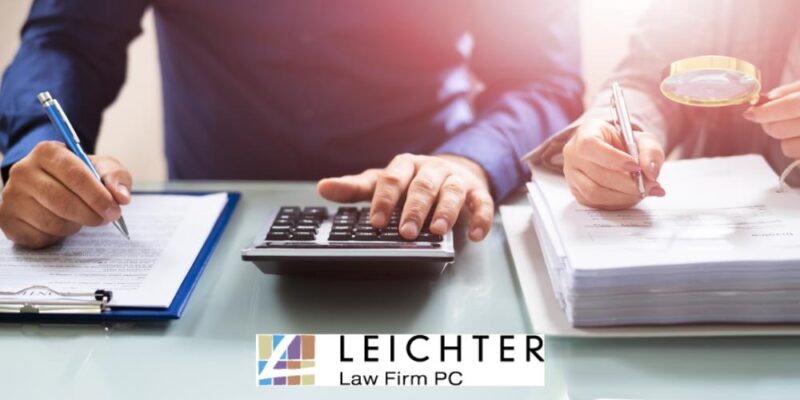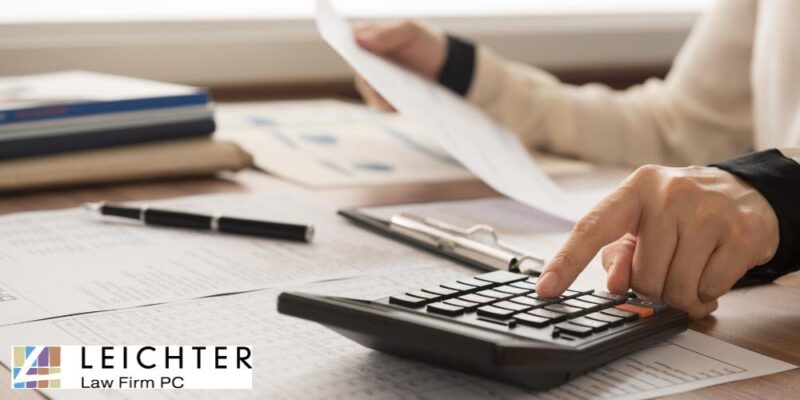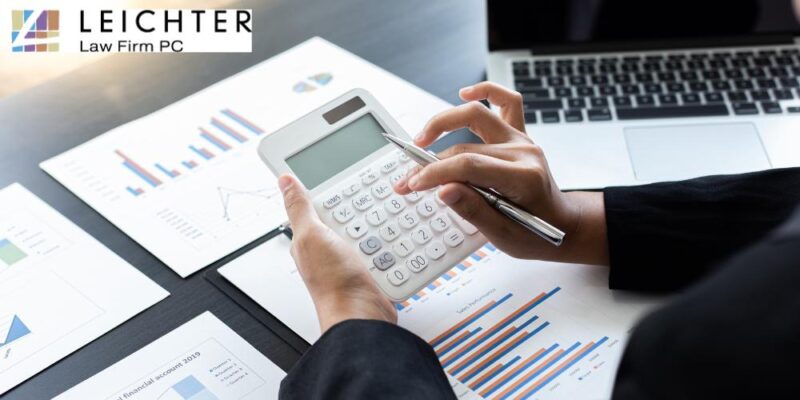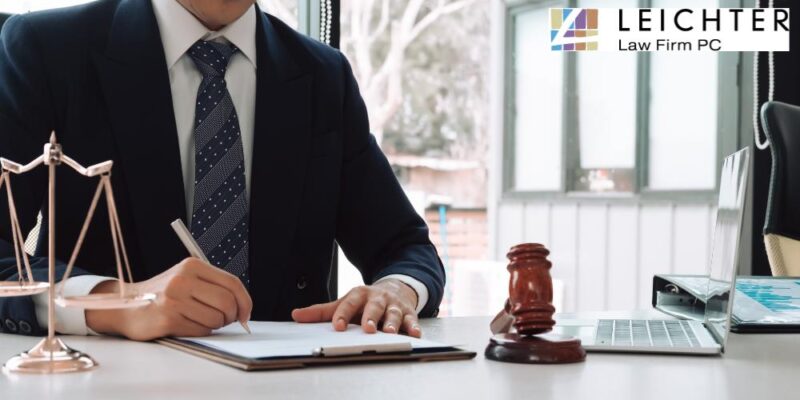CPA License Defense Attorney in Austin and Houston, TX
Texas Accounting License Defense Attorneys
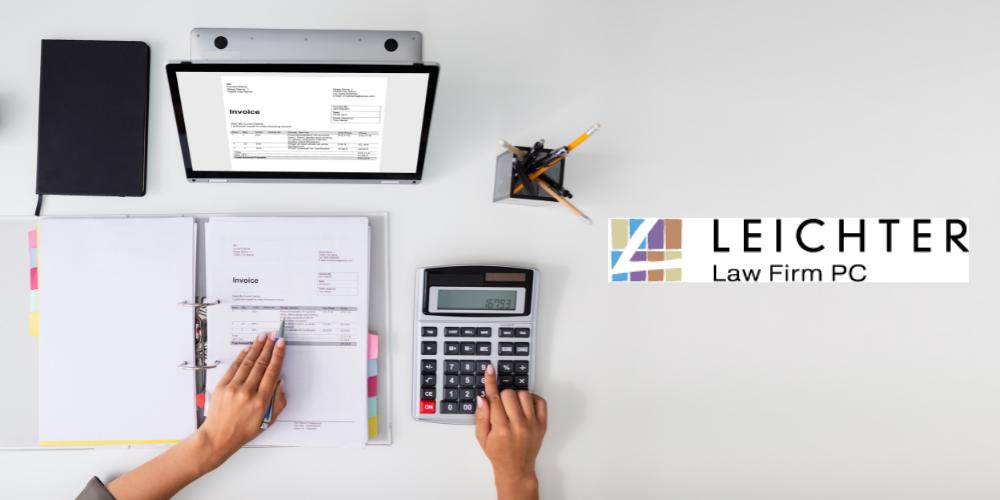
As an accountant, your CPA license is vital to your ability to support yourself and your family, and if you are in danger of losing your license, you have every reason to be concerned about defending yourself, your practice, and your good name. The seriousness of the potential punishments in these cases requires vigorous defense from a CPA license defense attorney.
At the Leichter Law Firm, our experienced professional licensing defense lawyer understands the complexities of license defense law. We have represented many clients whose charges could end in a fine, the loss of licensure, or other punishments, and we may be able to secure the outcome you need. To talk with one of our compassionate attorneys, please contact us today by calling 512-495-9995.
How Does the Board of Public Accountancy Detect Grounds for Discipline?
The Public Accountancy Act gives the Board of Public Accountancy the authority to probate, reprimand, revoke, or suspend one’s CPA license for certain violations. Generally, the Texas State Board of Public Accountancy uses two methods in detecting potential violations or areas for disciplinary action. These methods are:
- Complaints and investigations
- Peer reviews
If someone is believed to have been involved in anything that constitutes grounds for disciplinary action by the licensing board, it is likely that a complaint will be submitted against them. After a complaint is submitted, you will receive a letter regarding the complaint and subsequent investigation.
As soon as you receive this letter, we strongly recommend that you work with an accounting license defense attorney. Continuing without one could mean risking your professional license and integrity.
Peer Review
Peer review processes are another way the Board of Public Accountancy can look into potential violations. The main difference between the peer review process and the complaint and investigation process is that complaints come from outside sources. Peer reviews are begun with the intent of monitoring and auditing a CPA’s work.
These reviews look for violations of compliance with accounting regulations and expected standards. If the Board of Public Accountancy finds grounds for discipline, they will then file formal charges against the individual.
Notice of License Defense
If you have received a letter of accusation from the board of accountancy, you must submit a Notice of Defense. In most cases, you will have 15 days from the day the letter was sent to file the notice of defense. Otherwise, you may lose your right to a hearing.
Again, we strongly recommend working with an experienced attorney to defend your professional license. Hiring a lawyer as soon as you receive the letter of accusation from the board is the best step to take. They will help you prepare a notice of defense before the deadline, which may help get the complaint dismissed.
If you fail to file the notice before the 15-day deadline passes, the board will place you in default. At this point, the board may take strict disciplinary actions against you. They may even revoke your license or deny your license application.
Accounting License Defense
The Public Accountancy Act (§ 901.159) provides for a Peer Review program to review the work product of certified public accountants and accounting firms for compliance with accounting standards.
Under 22 Texas Administrative Code § 527.4(a), participation in the program is required of each certified accounting firm that performs audits, reviews, compilations, forecasts, projections, or special reports. If the accounting firm receives an adverse report or review from the peer review committee, the Board of Public Accountancy may refer the firm or the contributing accountant to the Disciplinary Process, 22 Texas Administrative Code § 527.5(d).
Because the complaint and peer review processes can cause a certified public accountant to be subject to discipline, it is imperative that professional accountants obtain representation throughout either process. Bear in mind, the evidence obtained by the peer review committee can be requested and subpoenaed by the Board to further supplement and substantiate the Board’s investigation of a complaint.
If, after a complaint and investigation or peer review, the Board of Public Accountancy determines that grounds for discipline exist, formal charges may be filed in accordance with § 901.509 of the Public Accountancy Act. The accountant may then request an Informal Settlement Conference to resolve the matter without requiring a formal hearing.
If the case cannot be resolved informally, the certified public accountant is entitled to an administrative hearing at SOAH, a forum procedurally similar to a civil trial. At both the settlement conference and administrative hearing, the accountant has the right to representation and the opportunity to present a defense to the allegations.
What Allegations Could Lead to a CPA License Being Revoked?
The Board of Public Accountancy monitors the accounting services provided by certified public accountants for ethical and professional violations. Under § 901.502 of the Public Accountancy Act, a public accountant may be disciplined for:
- Fraud, dishonesty, or gross negligence in the performance of accounting services
- Violating Subchapter J
- Violating the Rules of Professional Conduct
- Conviction of a felony, or a misdemeanor involving fraud or dishonesty
- Conduct indicating lack of fitness to serve as a Certified Public Accountant
Pursuant to § 901.501 of the Public Accountancy Act, the Board has the authority to reprimand, probate, suspend or revoke a license holder for any of the above violations. The Texas State Board of Public Accountancy employs two principal methods of detecting grounds for discipline: (a) the Complaint and Investigation Process (Public Accountancy Act Subchapter E, 22 Texas Administrative Code §§ 519.20 – 519.20), and (b) Peer Review.
Can You Be a CPA with a Misdemeanor?
According to the Public Accountancy Act, criminal misdemeanor convictions involving fraud or dishonesty may result in administrative hearings or disciplinary action. Criminal convictions not involving fraud, dishonesty, or professional responsibilities of licensed CPAs will not automatically disqualify someone from becoming or remaining a CPA. However, licensing boards will take all criminal convictions into consideration when determining whether to issue or renew a license.
Can You Be a CPA with a Felony?
A felony criminal conviction also does not automatically disqualify individuals from becoming licensed professionals in accounting. However, applicants will need to disclose and explain any felony convictions. Whether or not someone can become a CPA, renew, or keep their license will be determined on a case-by-case basis. However, crimes involving fraud, dishonesty, or the professional responsibilities of a licensed CPA will likely result in disciplinary situations.
What Potential Penalties Are There for CPA License Violations?
If, after the hearing, an administrative law judge and the board of accountancy find that you have committed a violation, they may take disciplinary action. Some of the disciplinary actions they may take include the following.
- Corrective actions: The licensee works with the accounting board to correct the alleged misconduct.
- Reprimands: The licensee must acknowledge the violation in a written letter outlining the professional standards they have violated.
- Continuing education: If the licensee simply fails to complete their continuing education requirements, the board will likely require that they complete these courses. They may also require a licensee to attend substance abuse courses, if applicable.
- Probationary periods: This is where the disciplinary actions become more severe. A licensee may be placed on probation, during which they must improve their conduct or correct their misconduct before their license is reinstated.
- Limiting your practice: If the violation involves one particular area of your practice, the board may limit the scope of your practice. Specifically, they may bar you from practicing in that particular area in the future. The purpose of this is to avoid any further violations.
- Suspension of license: When the board suspends someone’s license, it is typically suspended indefinitely. To have the license reinstated, the licensee will generally take some corrective action, ideally with representation from a license defense attorney.
- Revocation of license: The most severe penalty is license revocation. Having one’s license revoked means they can no longer practice in that field.
Why Do I Need an Attorney to Defend My CPA License?
While you are not required to hire an attorney for your case, it is in your best interest to do so. Defending your license without help from an experienced attorney can be a very complicated and intimidating process. An attorney with extensive experience in license defense will know exactly how the process should go, as well as how to defend you and your professional future.
Contact a CPA License Defense Lawyer in Texas
If you are a Texas accountant and you have to go in front of the Texas State Board of Public Accountancy, the Leichter Law Firm may be able to help you. To discuss your case with one of our experienced Texas accounting license defense attorneys, please contact us today by calling 512-495-9995 and scheduling your free consultation.
Get in Touch
Office Locations
1602 E 7th St
Austin, TX 78702
Phone: (512) 495-9995
Get Directions
3700 N Main St
Houston, TX 77009
Phone: (713) 714-2446
Get Directions
214 N 16th St #128
McAllen, TX 78501
Phone: (956) 205-0884
Get Directions

